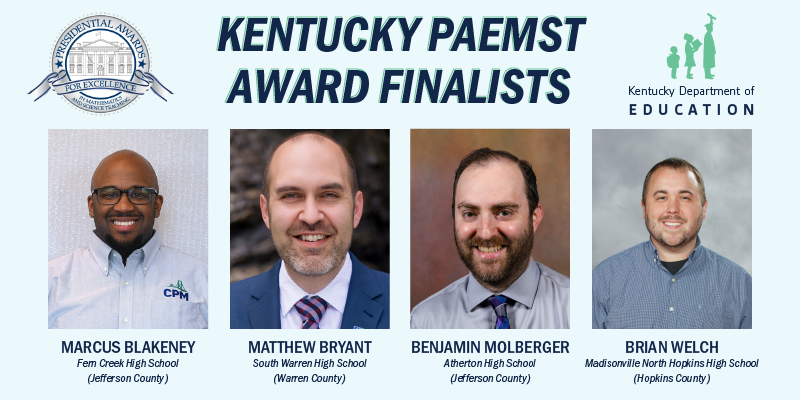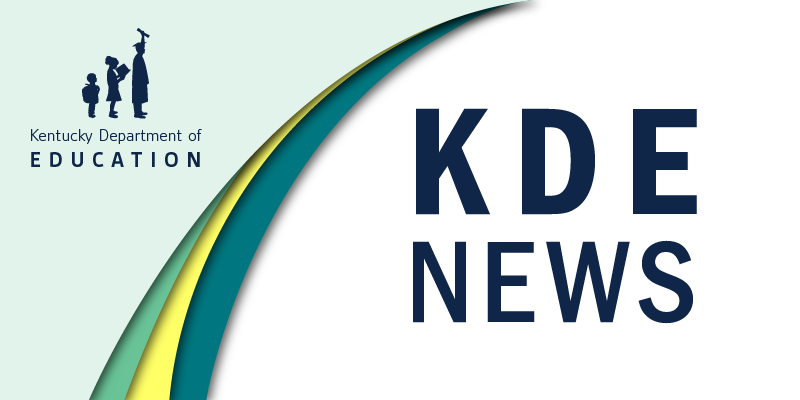By Dee Crescitelli, Katie Gissing and Chrystal Rowland
The professional learning community (PLC) is a buzzword in the educational world, with schools and districts setting up schedules and mandating PLC time.
Some educators, however, wonder if the original intent and purpose of professional learning communities has been lost. A good working definition of a professional learning community or professional learning team comes directly from one of the Kentucky Professional Learning standards that were adopted in 2013 (704 KAR 3:035).
The standard reads: “Learning Communities: Professional learning that increases educator effectiveness and results for all students occurs within learning communities committed to continuous improvement, collective responsibility and goal alignment.”
Three years ago, a learning community made up of teachers, instructional coaches and regional coordinators began working with the writers of the standards through Student Achievement Partners in learning about the shifts of the Kentucky Academic Standards for Mathematics. This group became known as the Kentucky Core Advocates.
These shifts the Kentucky Core Advocates studied included:
- Focus strongly where the standards focus.
The Kentucky Academic Standards for Mathematics call for a greater focus in mathematics. Rather than racing to cover topics in a mile-wide, inch-deep curriculum, the standards require us to significantly narrow and deepen how time and energy is spent in the mathematics classroom. Shareholders focus deeply on the major work of each grade so students can gain strong foundations, which include a solid conceptual understanding, a high degree of procedural skill and fluency, and the ability to apply the math they know to solve problems inside and outside the math classroom.
- Coherence across grades and link to major topics within grades.
- Thinking across grades: The standards are designed around coherent progressions from grade to grade. Learning is carefully connected across grades so students can build new understanding onto foundations built in previous years. Each standard is not a new event, but an extension of previous learning.
- Linking to major topics: Instead of allowing additional or supporting topics to detract from the focus of the grade, these concepts serve the grade-level focus. For example, instead of data displays as an end in themselves, they serve as an opportunity for grade-level word problems.
- Rigor in major topics pursue conceptual understanding, procedural skill and fluency and application with equal intensity.
- Conceptual understanding: The standards call for conceptual understanding of key concepts, such as place value and ratios. Students must be able to access concepts from a number of perspectives so that they are able to see math as more than a set of mnemonics or discrete procedures.
- Procedural skill and fluency: The standards call for a deep understanding of mathematical concepts, which results in the facility to efficiently and accurately access, compare and apply strategies, knowledge and skills in a variety of contexts.
- Application: The standards call for students to use math flexibly for applications in problem-solving contexts. In content areas outside of math, particularly science, students are given the opportunity to use math to make meaning of and access to content.
Through multiple professional learning experiences, the Kentucky Core Advocates were trained in aligning resources and tools to enhance instruction in mathematics. Through these experiences, a subgroup – a professional learning community (PLC) – came together to use these tools and resources in their own schools and districts and found that other teachers would benefit from them too.
This PLC began thinking of a way to share their learning with teachers across Kentucky. They knew they would be able to share these tools and resources with colleagues in their own schools and districts, but what about the other thousands of teachers across Kentucky?
One of the group’s solutions was to design a professional learning series on the shifts of the Kentucky Academic Standards. Their suggested structure is for teachers to engage in this professional learning module using K-8 vertical learning teams.
Vertical learning teams allow teachers to collaborate vertically to really change their instruction and be more coherent, so students are no longer seeing mathematics in isolation. This also allows teachers to explore and examine instructional planning tools, practices and teaching materials that are grounded in the shifts of the Kentucky Academic Standards.
PLC members met weekly, sharing ideas on how to create a series of sessions with resources that teachers could use in their professional learning communities, creating a way for teachers to learn from one another and share ideas to further student learning.
Once team members had a framework for goals and specific content for the sessions, they worked independently for a time. They played on one another’s strengths and passions in this journey of the shifts and let that drive the design of the session.
Each person worked on the session that he or she had the most prior knowledge of and for which they knew of high-quality resources aligned to the Kentucky Academic Standards.
The structure of the professional learning meetings usually began with a brief personal narrative on what was happening in their everyday teaching lives. This helped build trust among the educators and respect for each individual as a learner. Next, sessions were discussed and feedback was given to help the PLC move forward in designing these sessions.
PLC members all are practitioners and work with teachers and students, so finding a way to build knowledge of the shifts of the standards mattered to improve instruction in math classrooms.
Because some team members already had started this work on vertical professional learning and the shifts, they were able to give real time feedback on what is working in schools and districts. This also helped leverage the shifts of the standards module as a support for teachers who are just starting to dive deeper into the standards of mathematics.
This module on the shifts of the standards in mathematics consists of six sessions, all grounded in the Kentucky Academic Standards. These sessions are organized with a process agenda linked with resources and a PowerPoint that guides the facilitator in the presentation of each session. This module is a professional learning series can be used as a professional learning cycle, starting with building on teacher’s knowledge of the shifts in mathematics.
Next, teachers use their knowledge of the shifts to look at student work to make sure their instruction is aligned to the standards. Following student work, teachers build their capacity to be critical consumers of mathematics materials to ensure grade-level depth of the standards. The last session engages participants in looking at a tool that helps teachers plan, implement and design instruction grounded in the shifts of the standards in mathematics.
The overview of the module can be found here.
PLC members recently presented the module of the shifts of the standards in mathematics at the 2016 Kentucky Association for Assessment Coordinators’ conference in Louisville to gain feedback and then revise the module. The consensus was that this module is not going to solve all problems in mathematics, but it will give teachers some guidance on high-quality tools and resources to further their learning in the shifts of the Kentucky Academic Standards.
Through the training sessions, teachers will be able to look at the standards and understand where to focus their time and see the coherence of the standards and how it makes math make sense. Teachers will also be able to look at the three aspects of rigor to know where students understand conceptually, procedural/skill and are able to apply mathematics to real world problems.
The module, available in these Google docs, is a living document that will continue to improve as feedback is received. Below are some members from the professional learning team with their emails and are available for questions.
Dee Crescitelli is a regional consultant for Kentucky Center for Mathematics. Katie Gissing is an instructional coach in the Paris Independent school system. Chrystal Rowland is an instructional coach in Washington County. All three women are members of the PLC discussed in this article.



Leave A Comment